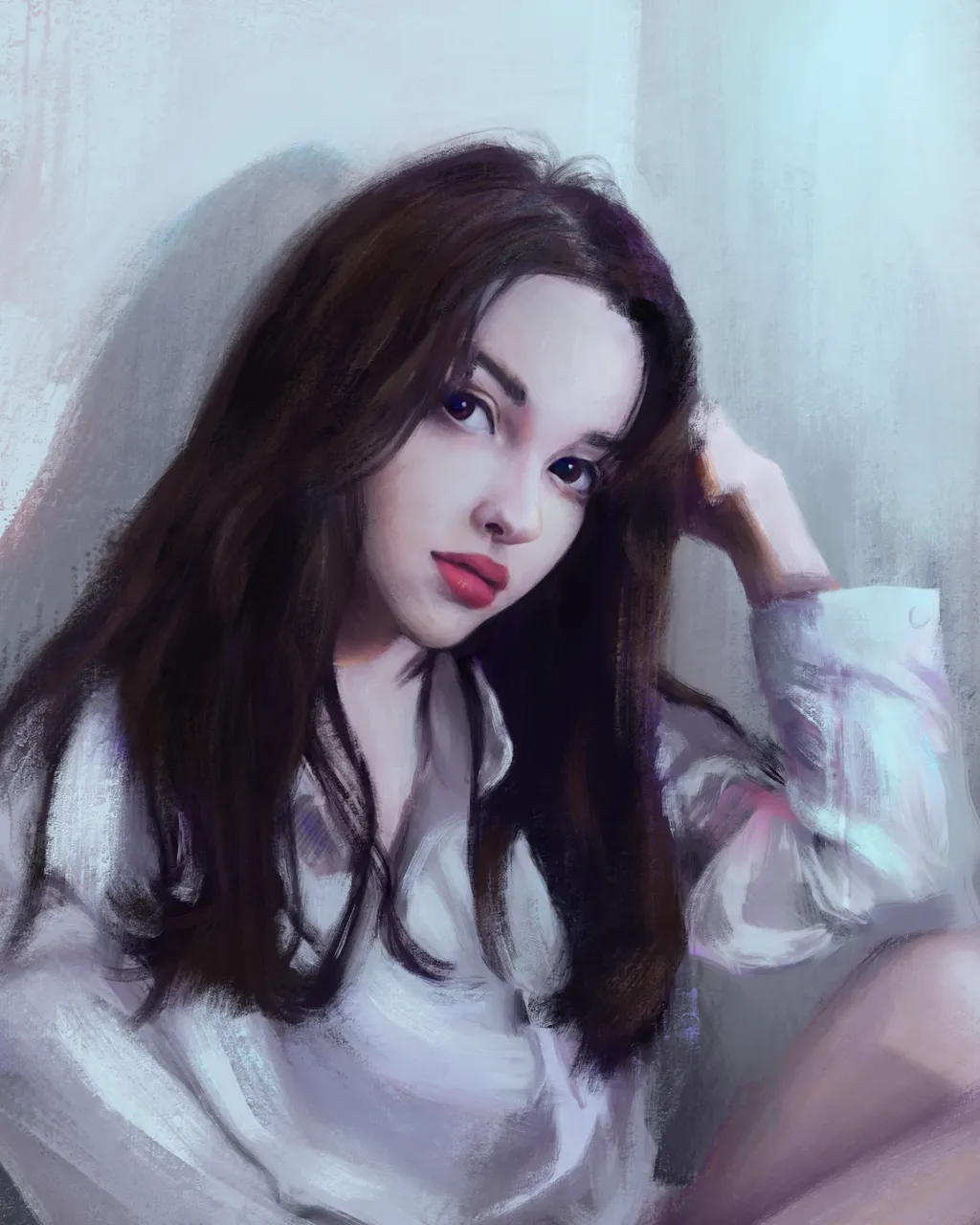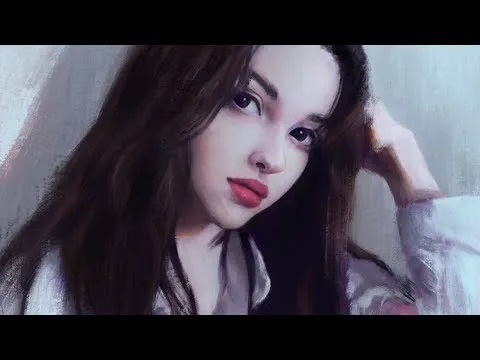Hey guys and gals! Sorry I haven't painted anything straight from my imagination in a while, I've been having some artistic troubles... Well to be honest I'm always having artistic troubles, that's just kinda my default state (haha). HOWEVER I bring some good news - I'm getting better at overcoming these troubles, so let's talk about it!
It's a very rare case that I ever start a new piece of artwork and just breeze through the whole thing without a single hiccup. I think a lot of people see art on the internet and immediately assume that the artist just whipped it out like it was a stroll in the park on a sunny afternoon. Sure there are some very experienced artists that've gotten past most of the bumps and hurdles, but the majority of artists, especially the ones that are just starting out or have high expectations of themselves, will find that they struggle quite significantly with almost every piece they make. Maybe they don't really like the final outcome and have no idea how to fix it, maybe they're stuck half way through a piece and feel like they've hit a brick wall. Maybe they're trying to start a new piece and their brain feels as though it's run completely dry on creative juice. Personally I deal with these problems all the time. But each time I get to the same problem again, I get a little better at overcoming it. I actually think that's a big part of learning anything, not just art. It's about managing to get past the problems more easily each time those problems pop back up. And the fastest way to improve is by simply accepting that there will always be problems, so you need to get good at identifying the problems, taking the time to fix the problems and then remembering how you fixed each problem, so when those problems come up again, overcoming them will be so much faster than the last time. To me, that's what it means to get better at something.
Now, it's all very good just telling someone to "fix the problems" but I'll admit, that's obviously easier said than done. Let's say for example you're drawing a face. You know that something about the face doesn't quite look right, but you don't know exactly what's wrong with it. In this case, our problem is quite simply "The face doesn't look right." Now that you've identified the problem, it's time to fix it. At this point you have 3 options. (1) Erase the face and redraw it with slight variations til you think it looks right, (2) give up.... Or (3) Do some research to figure out WHY the face doesn't look right. Only one of those options ends up with you fixing the problem and actually understanding HOW you fixed the problem, and that's option 3. Option 1 might EVENTUALLY get you a desired outcome this time round, but it will probably take way longer than necessary and won't help you learn how to fix the problem for the next time you come across it. If you really want to get better at something, you'll treat every problem like a mini puzzle. Luckily these days you don't have to spend the time solving the puzzle because we have this beautiful thing called the internet which pretty much has every answer ever. If you've got a problem, chances are someone else has already had that problem before you, so the hardest part for you is really just identifying the problem, cause then you can just search the web for an answer. Or if can't be bothered sifting through the internet's plethora of answers for the right one, you can always try asking someone more knowledgeable than yourself.
Sometimes the key to finding the right answer to your problem is understanding what the problem is in greater detail. Break the problem down into smaller chunks and try to chew through them one at a time. For example, we know our drawing of a face doesn't look right, but what about it doesn't look right? This is where you have to ask yourself plenty of questions. Does it look lifeless? Are the proportions bad? Is the direction of the light consistent? Is there a lack of ambient occlusion? Would some subsurface scattering help bring it to life? Etc.. Then whichever questions you think are relevant to your problem, you can create a new questions for each of those questions, helping to break it down even further. Let's say you think the proportions are bad, then you can ask more specific questions. Are the eyes too close together? Is the chin too flat? Is the nose too small? Eventually the question is broken down in to such small pieces that the solution seems obvious. So obvious that you might not even need to scour the internet for an answer! Breaking down a big problem into smaller chunks is almost always the easiest way to find a solution.
Anyway I think I've rambled on for long enough now... Yay if you found any of that even slightly interesting or helpful haha. If you have any questions or thoughts on the subject, feel free to drop them in the comments below, I love hearing what you guys have to say!! Now here's a painting study I did of Elina, hope you like it :D
Reference photo/Elina's Insta:https://www.instagram.com/p/BhMIHyaFISX/
”Elina”

PROCESS TIMELAPSE
Let's have a blast together, follow me! :D
Instagram: https://www.instagram.com/joxus_art
YouTube: https://www.youtube.com/c/joxusart
DeviantArt: http://joxusart.deviantart.com
Instagram: https://www.instagram.com/joxus_art
YouTube: https://www.youtube.com/c/joxusart
DeviantArt: http://joxusart.deviantart.com
